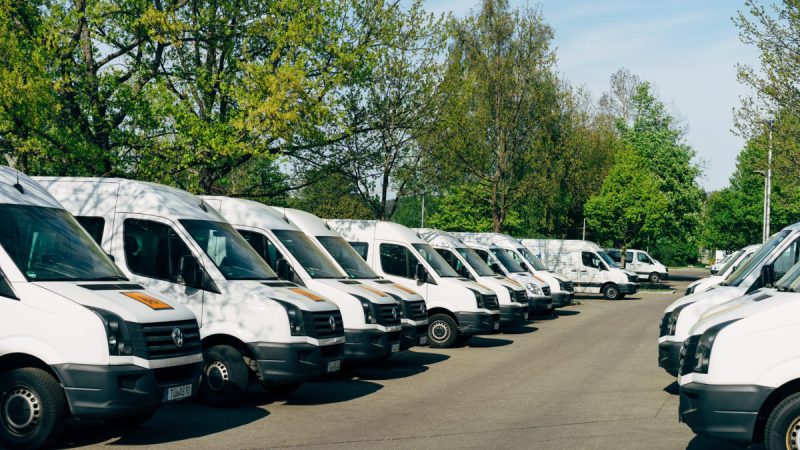Building a Lasting Brick and Mortar Business

Opening up your first retail store is an exciting endeavor, but it can also be a bit daunting. That’s why you must get everything in order leading up to your grand opening. Here’s a quick and easy guide on how to start your brick-and-mortar business.
A Master Plan
No business should start without first creating a proper business plan. It will serve as a guide and a roadmap on what steps you have to take in each phase of your process. From securing funding up to your grand launch, your business plan will help add structure to your business and keep you on track with your goals.
Your Product Lineup
Identifying the merchandise and products you want in your store, as well as the services you want to provide, is the first step in setting up your store.
One way to find out what those products are is by looking into your hobbies and passions. When you’re passionate about a product or service, you become invested in it and want to flourish. Since they are products that you are selling, you’ll always want them to be the best. Whether you’re developing original products or improving upon existing ones, passion for what you do will go a long way in the success of your business.
You must also make sure that you can source your products without any fuss. If possible, get a manufacturer nearest to your store. It will help you mitigate costs on shipping and other logistics fees that can increase your operational expenses.
Building Your Store
Once you’ve established your business plan and identified the products you’re going to sell, it’s time to get started on the physical store itself. Here’s what you should look for when turning your dream storefront into a reality:
-
Location
Naturally, choosing a location comes first. There’s a lot more to consider when choosing a place than most people might think. It’s not just about finding somewhere for your store to call home. When deciding where to set up your shop, you must consider the location and its local zoning and codes, the local weather, demographics, foot traffic, visibility, and many more. These are all factors that could dictate whether your location can benefit your business or become detrimental for it.
-
Demographics and Visibility
What is your target market? Are the customers you want the type of people that are close by the location? Does the store get enough visibility and foot traffic throughout your intended operating hours? These are some of, if not the most important considerations when choosing a place for your store. It’s because these measures are the primary indicators as to how many customers you’ll have in a day.
Gaining these pieces of information down beforehand will make deciding on the location become more intentional and informed. The strategy helps you make the best choice.
-
Style and Materials
When styling your store, your products or brand aesthetic aren’t the only references you should use when designing the space. With that said, you must also consider the materials and finishes you will use and their durability. Their visual appearance alone is not enough. The materials you use in your store must also be effective and long-lasting.
An example of this would be your store’s floor. Opting for high-quality timber floors provides the space with a timeless look while being durable. It’s easy to clean, maintain, and replace. Additionally, you can also change the finish of timber flooring easily when you want a different look in the future, making it very cost-effective. You should take a similar approach with all other parts of your store. By doing so, it will help you reduce costs on repairs and renovations in the future.
Not the Last, but the Lease!
After deciding on a shortlist of locations, it’s time to secure a commercial lease that works best for you and your business. When discussing your lease with the landlord, make sure that the responsibilities between you and them are established and clear. As with any new tenant, you’ll also have to discuss how the renovations will take place. Will the landlord provide a specific contractor for the job? Will you have to hire someone else yourself?
With all things that involve you, the landlord, and the space, there must be a set of legal documents that outline all terms agreed upon by both sides. These papers will serve as protection for both you and your landlord when disputes occur in the future.
Staff and Equipment

Skilled and capable staff are great, but when hiring people to man your store, they must also have the right attitude and personality. It would be advantageous to your business if you could assemble a team that’s also passionate about your products and services. If your employees are as interested in your store and its products as you are, they could potentially provide customers with a better shopping experience. It’s because they are probably as knowledgeable as you are when it comes to your products, giving them the ability and confidence to answer any inquiry from your customers.
You should also provide your staff with the proper equipment and training that they need to perform their best. If a lack of equipment or materials is hindering them from doing their best, then you’re effectively hindering your store from growing too.
Once everything is in order, with a beautiful store, a fully stocked inventory, and a prepared staff, it’s time to open up shop. Make sure to get the word around both in traditional and digital marketing and make some noise. All the planning and preparations you’ve made will all bear fruit sooner or later. So enjoy the process and keep at it, and success is sure to follow.




